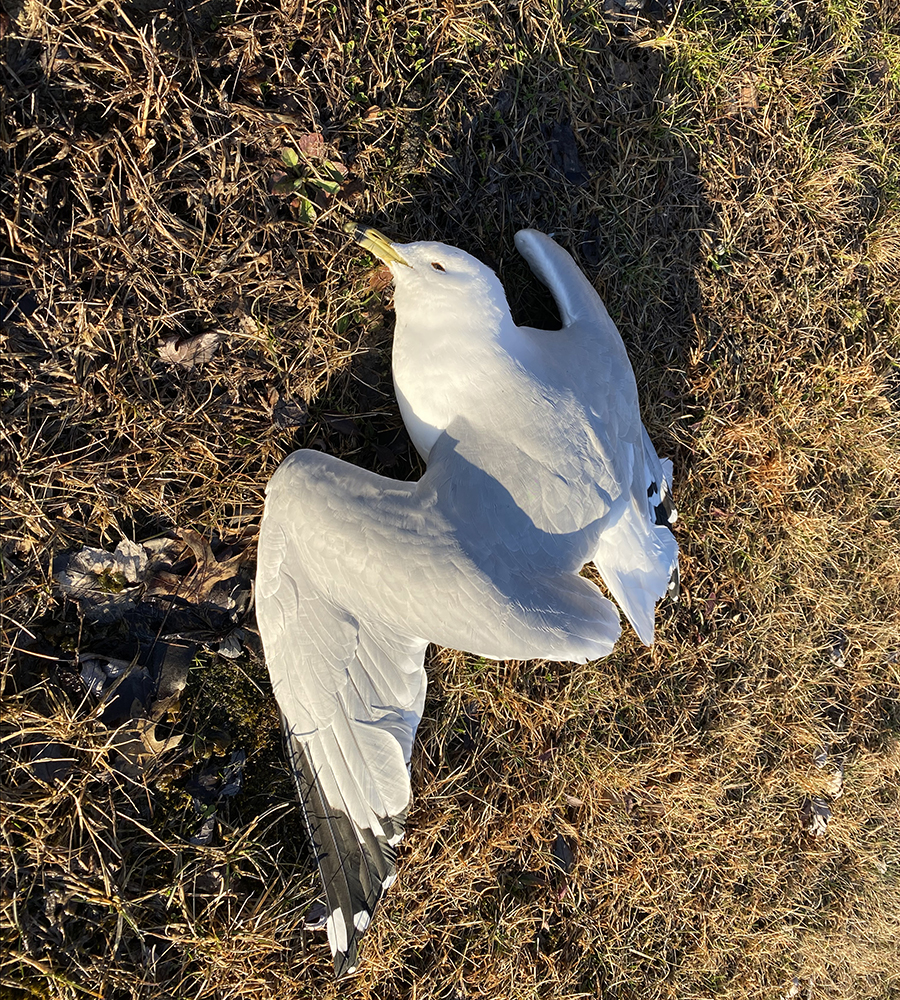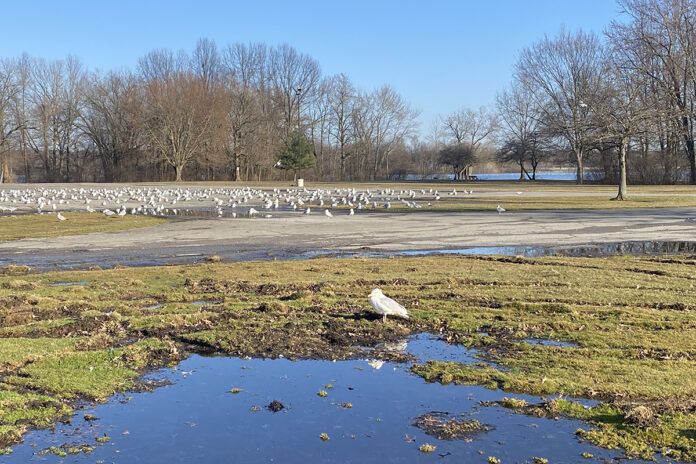Over the weekend I ventured out to Mosquito Creek Wildlife Area and Mosquito Lake State Park to look for tundra swans. But my swan dreams were replaced with a gull reality.
We drove up to Mosquito Creek Wildlife area first. The fields on either side of Park Avenue were peppered with groups of gulls, foraging for food and noisily squawking at each other. But there were no swans, so we continued on to the waterfowl viewing area at the end of Mahan-Denman Road.
Upon arriving, we saw and heard several Canada geese and we spotted a few pairs of ducks. But there were still no swans, so we set out on a hike through the woods. We found several dried lotus flowers on the ground along the shoreline, which inspired a renewed sense of excitement before we spotted the bird of the day.
An osprey emerged from the treeline and swooped low, over the water, looking for a meal. Fortunately for the fish, the osprey came away empty-handed and ascended again before disappearing around a bend.
We managed to see more ducks and a couple of hawks before ending our hike, but no swans. So we set out on one final journey to Mosquito Lake State Park near the boat ramp and public fishing areas.
There were plenty of gulls — in the parking lot, on the water, floating near the docks. There were tons of gulls of various species, flocked together in large groups. Our favorite sighting was a large herring gull that tolerated our presence in the parking lot.
We circled around the area and walked out on the shoreline and out onto the docks in search of the swans, but we didn’t see a single one.
Incidentally, we spotted our least favorite sighting of the day — a dead gull near the boat ramp.
Bird flu
Wild aquatic birds, including gulls, terns and shorebirds, and wild waterfowl, including ducks, geese and swans are natural hosts for bird flu viruses. Most of these birds don’t exhibit symptoms and spread the virus as a result.
I don’t know if the dead gull I observed died from bird flu or any disease, but I knew it was probably worth reporting because of its connection to bird flu.
I kept my distance and took a photo of the dead bird so that its eyes and beak were clearly visible. By taking the picture with my phone, I also recorded the location, including the longitude and latitude of the dead gull, and the date and time. It’s important to have this information to make a report to wildlife officials who may look into it later.

Reporting sick, injured, orphaned or dead wildlife
The best way to determine the appropriate reporting procedure where you live is to look up the guidelines of your state agency.
The Ohio Department of Natural Resources Division of Wildlife requests reports of dead birds that exhibit symptoms of disease such as crusty, bulging or sunken eyes via its Wildlife Species Sighting reporting system.
If you took a picture and recorded the date and location of your sighting, you should have all the information you need to submit a report to the Division of Wildlife.
If you happen upon a sick, injured or orphaned animal, the process is the same to report your sighting. The Ohio Department of Wildlife also recommends contacting a county wildlife officer or a local wildlife rehabilitator.
Soon we’ll begin seeing baby animals more frequently. Now is a good time to remind excited observers and over-zealous wildlife enthusiasts that most babies that appear orphaned are not and it’s not a good idea to capture or feed wildlife without expert guidance. Human interaction can stress wild animals and open the possibility of them becoming habituated. Young wild animals that become tame cannot be released into the wild. Rehabilitators undergo extensive training on how to raise and treat young wildlife, so they have the best chance of survival in the wild later. Leaving it to the professionals when you come across a sick, injured or orphaned animal gives it its best chance for survival.










